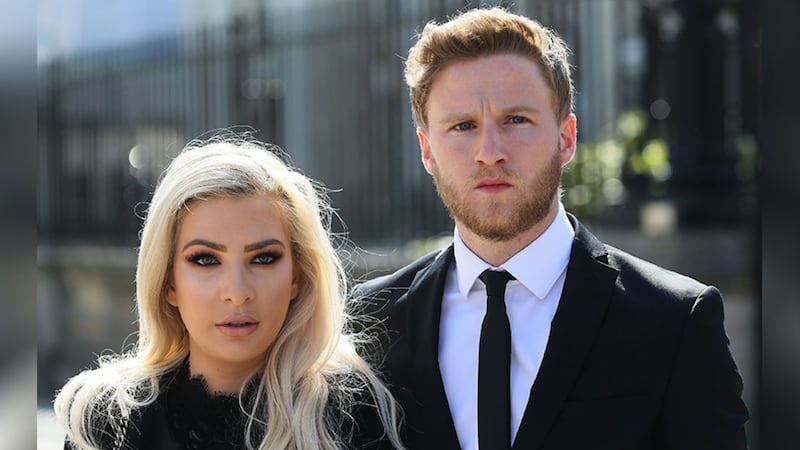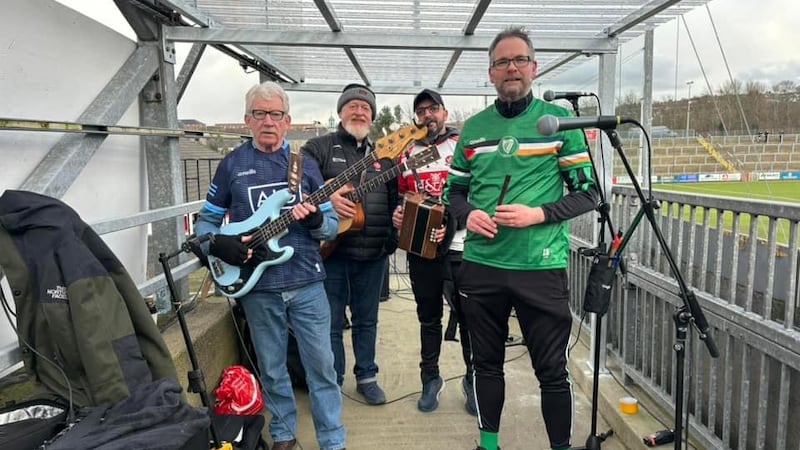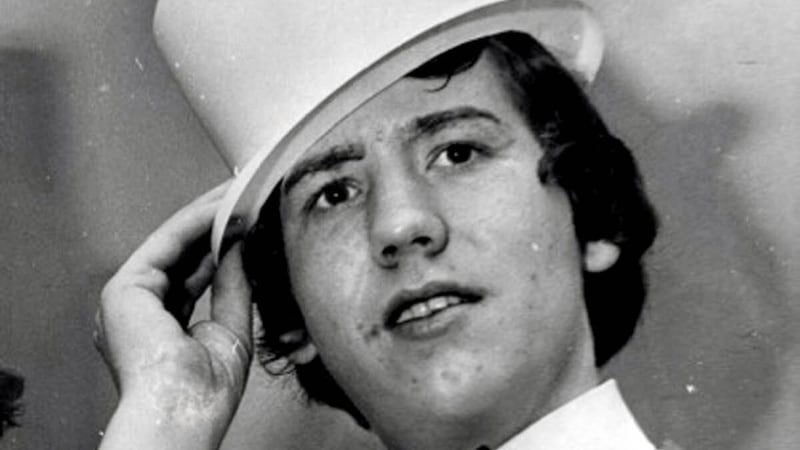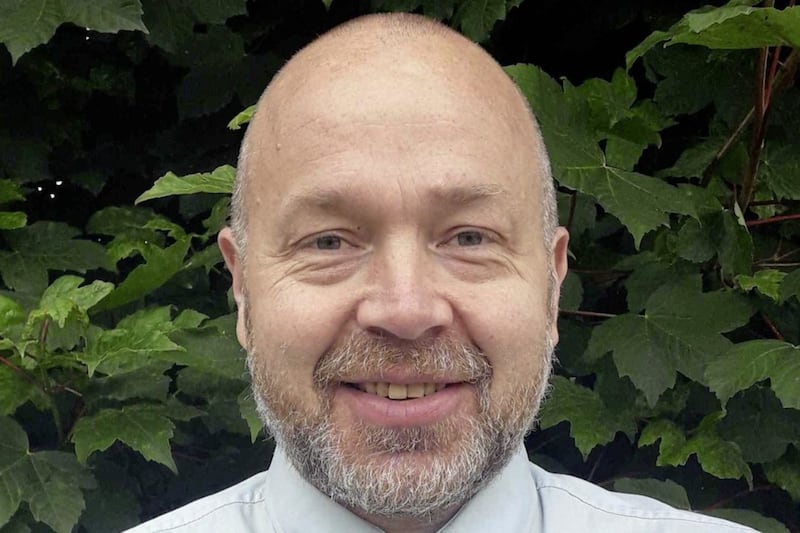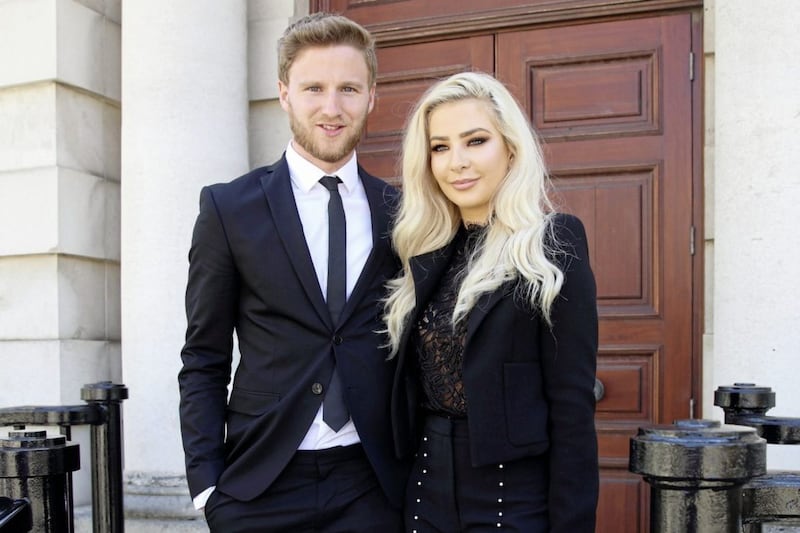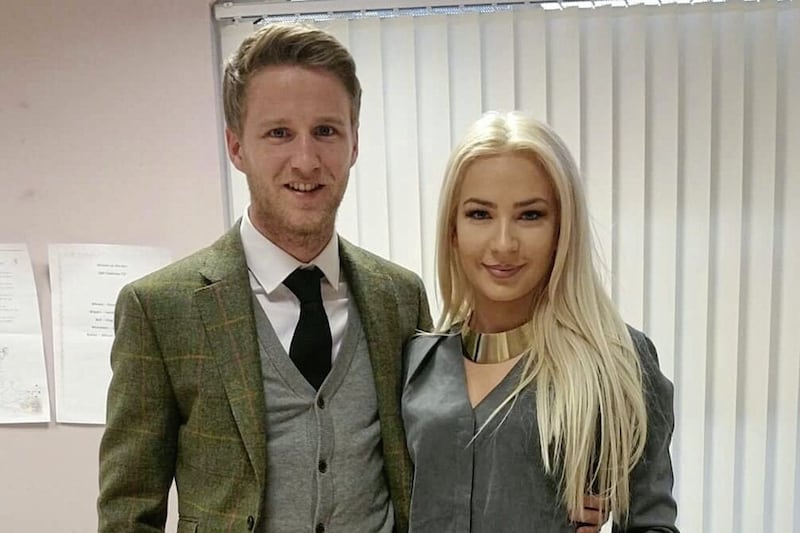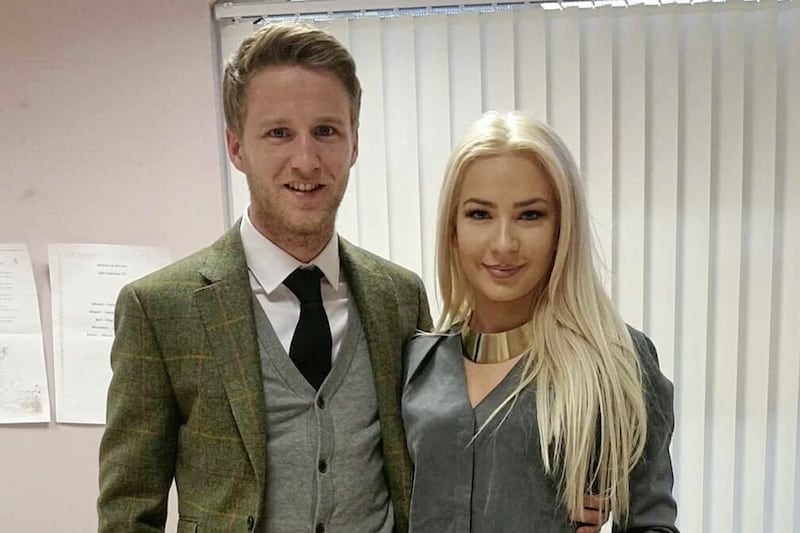An atheist challenging the denial of legal status for her humanist wedding has based her case on sworn statements, Northern Ireland's Attorney General argued today.
John Larkin QC questioned Belfast model Laura Lacole's non-religious views at the High Court bid to have her marriage to Republic of Ireland footballer Eunan O'Kane officially recognised.
He said: "This litigation which, it's been suggested, is founded on non-theistic views of great seriousness, is founded on affidavits that are sworn.
"Either they are emphatically sworn or the individuals who solemnly took the New Testament in their hands and executed those affidavits are really not that fixated on their views on such matters."
The attorney's intervention came as Ms Lacole (27) claimed the couple are being denied equal rights with religious groups.
She is due to wed Mr O'Kane, a midfielder with Leeds United, at a ceremony conducted by a British Humanist Association celebrant in Northern Ireland next month.
Under current law a couple who want that type of ceremony must also have a separate civil registration for their marriage to be acknowledged officially.
The same situation applies in England and Wales, but not in Scotland or the Republic of Ireland.
Ms Lacole, vice-chair of Atheist NI, alleges she is being discriminated against under the European Convention of Human Rights' protection for freedom of belief.
She is seeking to judicially review the General Register Office (GRO)'s decision not to authorise the ceremony due to be conducted by a British Humanist Association celebrant.
The action is also directed at the Department of Finance' alleged failure to introduce legislation to allow a legally binding wedding event.
Both the model and footballer were at the High Court for a case described as having major public interest.
Barrister Steven McQuitty, for Ms Lacole, said the couple want the same "legal blessing" afforded under Northern Ireland law to all religious groups from Pagans to Free Presybyterians.
"The applicant and her fiance are both humanists and would unsurprisingly like to have a humanist wedding ceremony conducted by a humanist celebrant," he submitted.
Mr Justice Colton was told the couple's central complaint is that the GRO and the department have refused to authorise the event.
"This ceremony, as things currently stand, will not create a lawful marriage, it will be legally meaningless," Mr McQuitty argued.
"The applicant's core legal argument is that the law as currently applied by the public authority, the GRO, provides for more generous treatment to religious groups... (while) denying that privilege to another equally valid belief group, that is to say humanists."
Stressing the significance of the case, Mr McQuitty cited a boom in humanist marriages in Scotland over the last 12 years.
In 2005 there were just 82 weddings, compared to nearly 9,000 in the Church of Scotland. By 2015, according to the barrister, all legally valid humanist marriages had soared to 4,290 - exceeding the Church of Scotland.
Philip Henry, responding for the department, stressed there are currently only 781 card holding humanists and supporters in Northern Ireland - compared to 55,000 in England and Wales.
Referring to affidavits from two other local couples, he continued: "At it's height we are dealing with three in similar positions in a jurisdiction of 1.8m people."
Mr Henry added: "It doesn't follow that because one jurisdiction has chosen a certain course, any other jurisdiction which chooses a different course is not Convention compliant."
